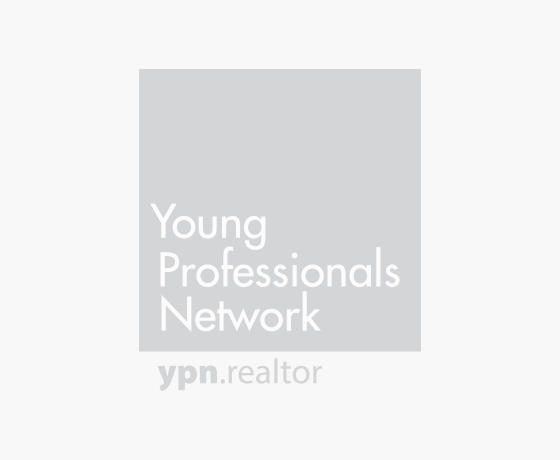
Brett Caviness
By Brett Caviness
I simply couldn’t wait two more years to graduate college before entering my dream career as a REALTOR®, so I didn’t. I went active as a real estate agent in Cedar Falls Iowa in 2009. Since entering the business, I have worked hard to manage my time. With class, work on campus, activities and friends I was able to make time to schedule showings, and close deals in-between. There are a lot of things I wish I knew before I got into the business; I mean this is hard work! So I made a list of a few things I wish they told me about the real estate world in my weekend classes.
1. A real estate license doesn’t mean sales. Your office doesn’t just hand you over some magic list of names of people ready, willing and able to buy or sell. You have to find them yourself.
2. Even if you are a part time agent, this is a full-time job. I didn’t realize between classes I would be on the phone with clients, offices, the abstract company, lenders and others while reviewing important documents on my Blackberry.
3. Starting a career in real estate is like starting your own company. I have quickly learned to be my own boss, marketing director, web master, public relations manager, and accountant while always working in research and development.
4. Real estate professionals get a bad rap. Who knew? I always imagined my life in the business, excited to exceed expectations and develop lasting relationships. You mean not all agents work that way? Being able to explain what makes you and your services different along with the truth about real estate professionals is powerful knowledge to convey to the public.
5. Don’t miss a belt loop. At a broker’s open, experienced agents can’t wait to point out anything they can to assert their superiority.
Even knowing all of this, I still wouldn’t have changed a thing. Each experience has helped me learn and become more knowledgeable and better prepared for the business. This profession is about continuously learning and adapting to changing needs, technology and services that clients expect plus some maybe they didn’t. I have strived to arm myself with as much knowledge about my local market, trends, laws and codes as well as other valuable local information. Clients really respond to the knowledge you are able to convey beyond how many square feet and number of bathrooms the home has. Going beyond what you learn in the class room makes all the difference in your business and the level of service your clients receive.
Brett Caviness is a REALTOR® in the resort community of Okoboji in North-West Iowa. Connect with him at www.BrettCavinessHomes.com.

Comments 10
Great blog post. I look forward to reading more!
“Starting a career in real estate is like starting your own company.” I think this is perhaps the most frequently misunderstood aspect of a real estate career. In order to get past doing deals for just family and friends you need to treat your job like a business and think on a large scale.
Bret is so right. New agents coming into the business think that selling real estate is going to make them a lot of money. In fact the oppisite is more true. New agents soonI have seen many new agents find out it s not easy and then start looking for the “magic pill” that will turn their business around. They end up spending tons of money on lead generation companies, siminars, where the speaker’s only real goal is to sell books and tapes on their secret of how they sold 500 homes in one year.
Fact is, most new agents will be out real estate within their first year. Why? Simply because they can’t grasp selling real estate is hard work, you have to sometimes get out of your comfort zone, and finaly discover there is no “magic pill”.
A lot of these agents that come through, if not all of them at your broker open, could be very valuable. Broker opens are a lot like open houses – you only get the real feedback out of them if you are properly organized with a system.
Draw all of the agents in with some good food (I think food works best – we all like some different type of foods, etc). Be sure to provide feedback forms about the house – a list of things on a scale of 1-5 or 1-10 about certain aspects like the yard, the busy road, the house layout, the key points in question, etc. Good things -bad things – it will be helpful in marketing and for seller feedback.
Make sure you get these forms back before the agents leave. It’s easy to get caught up in the moment, so maybe someone to help you with this task would be helpful.
You could also gather their email addresses and email the survey form later (provided you gathered the legitimate email addresses at the broker open).
However, I think it is best to be it filled out while they are the at the house in the moment of discovery. Otherwise, they will not remember as well as if they are there at the time of previewing the home.
A broker open, just as an open house – well – without any authentic feedback, is basically fruitless.
Great blog, Brett. I think your most important statement is that “Even if you area part time agent, this is a full-time job”. People have large deposits at risk, often representing a significant portion of their wealth. They must rely on our attention to the details of their legally binding contracts. They really don’t care if we are too busy to take care of our real estate responsibilities because of “real jobs”. I find little more infuriating than calling an agent on the other side to schedule an inspection or a walk through only to be told, “Gee, I can’t. I have to work.” What the heck do they think I am doing?!
Many years ago I was doing research for the first edition of my book Your Successful Real Estate Career (American Management Association). I conducted a research project in which I asked brokers from around the country their opinion of the major reasons the drop out rate among new agents was to high. The number one factor on their list was “Lack of self-starter and self-motivator personality.” Brett has made some very accurate observations. No matter how great a company with which you affiliate, you are going to be essentially a one person business. Customers and clients will not come to you (typically). You will have to generate your own contacts. One of the chapters in my book Is “It’s a Great Life, If It’s the Life For Which You’re Suited.” I’ve contacted Brett and hope to get his input when doing work on edition six of my book (waiting for the market to pick up some before release.)
You can’t help but admire someone who’s that ambitious, mature, and focused at such a young age.
I have always said, age doesn’t dictate experience.
I don’t care if the seasoned agents have been in the business 20 years, if you can out produce them…experience is in the transactions, IMO.
Having started and operated several different businesses in my life, I knew that it was all up to me but alot of new agents don’t. You have to have an Entrepreneur spirit. I thrive with having to paint my own canvas but so many that come in just don’t know how to be entrepreneurs. I really think that those that make it are artist at heart. Great article. I love Real Estate but it is a 24 7 job but an amazing career. Really don’t know how you could be a student full time and do Real Estate? Thats an amazing accomplishment.
Thanks Brett for your tips and for everyone’s comments. I’m a 26-yr old starting my RE career and just passed the CA DRE exam a few weeks ago. If anyone has any tips/advice/resources they’d recommend I’d be happy to hear them.